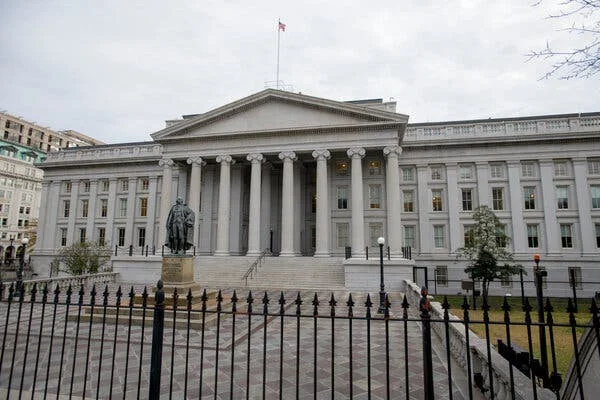
Bond Market Turmoil Sends Shockwaves Through Trump’s Tariff Strategy, Worries Wall Street
In a dramatic week on Wall Street, a sharp surge in US treasury yields has rattled investors and forced President Donald Trump to pause his contentious tariff war with much of the world. The critical role of government bonds—often referred to as the bedrock of the global financial system—has taken center stage, highlighting their power to influence economic policymaking at the highest levels.
The clash began as Trump's escalating tariffs spooked stock markets and fanned fears of an American and even global recession. Yet, it was a mass sell-off of US government bonds that truly caught the president’s attention, becoming a catalyst for an abrupt 90-day suspension on most of the new trade levies. This move emphasized just how crucial bond markets are, not only for investors seeking safe returns, but also for governments trying to finance their spending at manageable costs.
But what exactly occurred? A bond is essentially a loan: investors lend money to entities like the US government, which promises to pay them back with interest on a fixed date. Treasuries are typically seen as a global safe haven, but this week, that assumption was upended as escalating trade tensions led foreign investors—especially from China and Japan—to dump US bonds. The result was extraordinary. The yield on 10-year Treasury notes soared more than 50 basis points this week to 4.57%, its highest level since February. The two-year yield also climbed sharply. Since bond yields move inversely to prices, this indicated a dramatic sell-off and evaporating confidence.
Traditionally, during bouts of uncertainty, investors clamored for US debt; this time, however, they turned elsewhere. As Seema Shah, Chief Global Strategist at Principal Asset Management, observed: "They have repeatedly emphasized their focus on bond yields and even celebrated last week when Treasury bond yields dipped below 4%. Low financing costs appear to be a key pillar of the Trump administration’s overall agenda, so the reversal in market trends, surging Treasury yields, undoubtedly caused significant concern in the White House."
Trump’s team had initially expected that any negative reaction would be confined mostly to stock markets and the value of the dollar. The president believed future tariff revenues could be used to reduce the number of new bonds the US would need to issue, thereby containing debt levels and keeping yields stable. Instead, the trade war made it riskier to lend to the US, and investors’ fears triggered swift action. A spike in government borrowing costs threatened to balloon the federal deficit and ripple through the entire economy, potentially driving up mortgage rates and hurting ordinary Americans—key Trump voters who may suffer if borrowing grows costlier.
This is drawing comparisons to the turmoil that undid Liz Truss’s brief UK premiership in 2022. In both cases, bond markets effectively checked government policies, highlighting how sensitive modern economies are to shifts in investor confidence. As one White House insider put it, referencing recent events: “The fact that the bond market was telling us, ‘Hey, it's probably time to move,’ certainly would have contributed at least a little bit to that thinking.”
Although the 90-day tariff pause brought some stability to bond markets, yields remain elevated, keeping pressure on both Washington's fiscal plans and household balance sheets. Whether this episode will prompt a lasting change in trade and economic policy remains to be seen or if it proves to be a temporary setback for the administration’s ambitions.
What do you think about the interplay between global markets and US policies? Should leaders heed the bond market’s warning or stick to their strategic guns? Share your views in the comments below.
Related issues news
Why do bond yields rise when prices fall?
When a selloff hits and demand for bonds dries up, it sends bond prices lower. In turn, bond yields move higher. The recent bond selloff was likely triggered in part by fears that Trump's tariffs risk significant price increases, experts told ABC News.
Who is selling US treasury bonds?
TreasuryDirect.gov is the one and only place to electronically buy and redeem U.S. Savings Bonds. We also offer electronic sales and auctions of other U.S.-backed investments to the general public, financial professionals, and state and local governments.
Who sells US bonds?
TreasuryDirect is the official United States government application in which you can buy and keep savings bonds. To buy a savings bond in TreasuryDirect: Go to your TreasuryDirect account. Choose BuyDirect.
What is a bond yield?
A bond's yield is the return an investor expects to receive each year over its term to maturity. For the investor who has purchased the bond, the bond yield is a summary of the overall return that accounts for the remaining interest payments and principal they will receive, relative to the price of the bond.